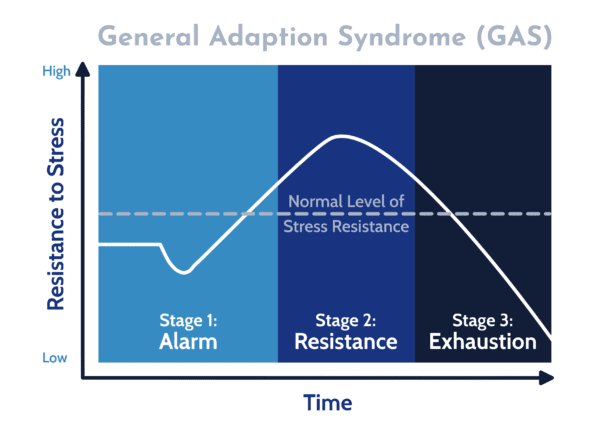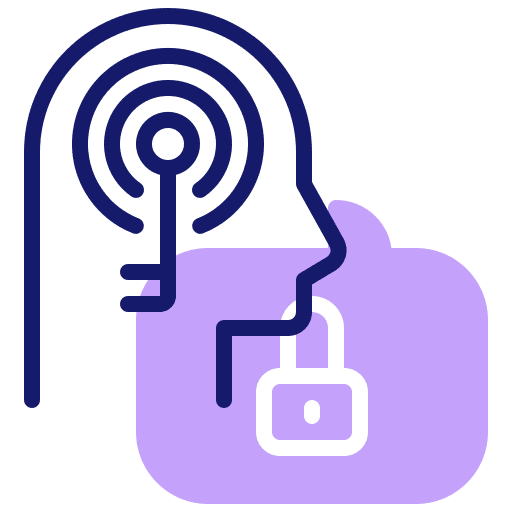General Adaption Syndrome
Your mind and body adapt to challenge, but how well?
Endocrinologist Hans Selye discovered similar patterns in both the human and animal reaction to stress. He found that there were three distinct stages of response.
Ideally, after the stress has been dealt with there would be time to recover, relax and repair any physical, or mental damage.
Unfortunately, evolution did not equip us with a mechanism that could cope with the constant pressures of life; we seem unable to switch off and relax, with dire and pathological consequences. Seemingly small stresses can be attacking us all day and without taking the time to recover, relax and repair (no, not chilling in front of the television in the evening) the body can go into a state of dis-ease.

Stage 1: Alarm Reaction (AR)
- The alarm is triggered by danger, like a lion
- Mobilising defences (fight or flight) and immobilising defences (freeze or hide) are triggered
- Depending on the situation, appropriate defences are selected and we are primed for action
- This is a very primitive response to danger triggered deep within the brain, controlled unconsciously
- Physically, the body increases blood pressure; blood glucose and oxygenation in preparation
- Ideally the action taken is sufficient and the predator or threat leaves or is overcome
Stage 2: Stage of Resistance (SR)
- If the stressor does not go away (or you are still in a poor quality relationship/job) the resistance increases
- Your body needs extra energy to maintain the high alert
- The hyper-alert stage prevents quality sleep and lethargy is common place
- Hormones and energy reserves are used up while the immune system suffers, dis-ease takes hold
- Changes in metabolism and appetite drive weight-gain or weight-loss
- Adrenal glands specifically ‘burn out’ due to overproduction of cortisol
Stage 3: Stage of Exhaustion (SE)
- After months or even years of stress the body begins to collapse
- Unable to maintain the high-alert stage, tissues and energy are depleted
- Immune system is suppressed and the heart suffers from continued elevated blood pressure
- Mental exhaustion is combined with physical exhaustion, increasing risk of all diseases

Biofield Science
The Biofield stores emotional experiences and as we go through life, memories, traumas and limiting beliefs create energetic imprints

External Screen Model
The External Screen Model answers ‘WHY’ our neurology reacts the way it does

Sub-Conscious Mind
The subconscious mind is a database of past experiences that regulates our thoughts and behaviour

General Adaption Syndrome
There are three distinct stages of response to stress.
Stage three can be common and deadly

Non-Verbal Communication
Non-verbal communication accounts for as much as 93% of your
communication with others

Academic Papers
Dive into my academic articles to learn how I am staying at the cutting edge of science to better understand your mind